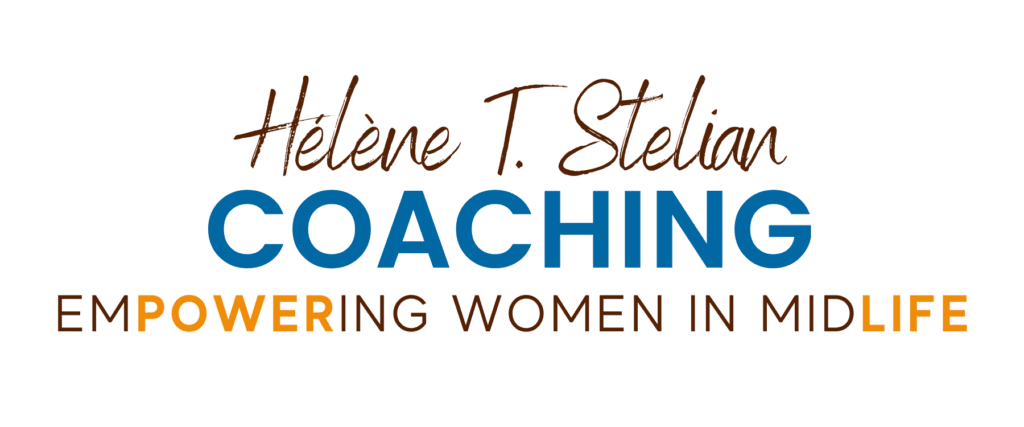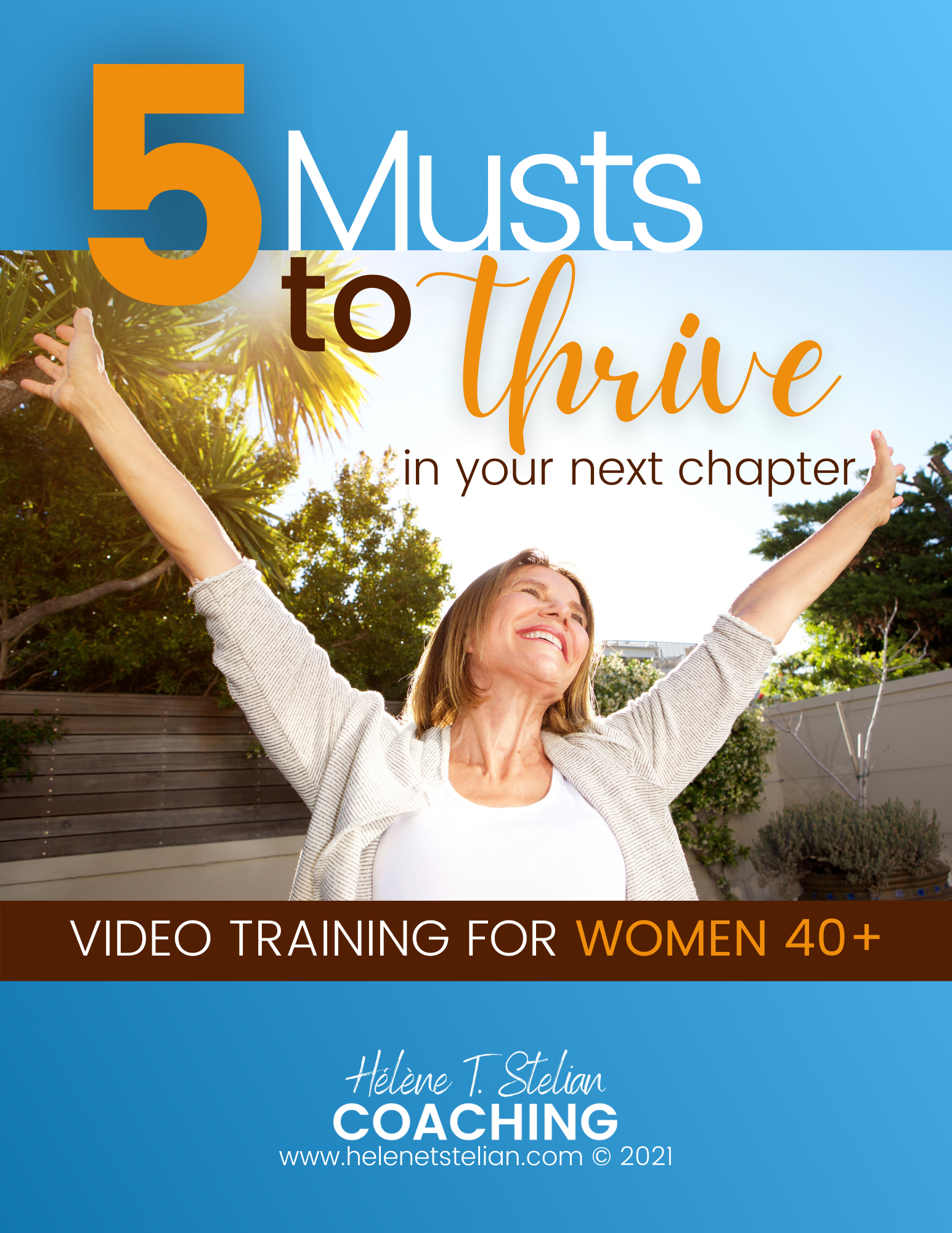 What unique challenges do women face related to nutrition and weight as they enter midlife?
What unique challenges do women face related to nutrition and weight as they enter midlife?
Most women know that the ovaries produce estrogen, but many are not aware that fat cells also produce it. During menopause, the amount of estrogen produced by your ovaries decreases. Your fat cells try to compensate for the hormonal imbalance by swelling and becoming larger. These larger fat cells typically congregate around the waist, explaining some of the weight gain that accompanies menopause.
Aside from unwanted weight gain, extra fat stored in the belly increases risks for serious health problems. These include heart disease, Type 2 diabetes, insulin resistance, and metabolic syndrome. Hot flashes, headaches, mood swings, difficulty concentrating, and sleep disruption can also be triggered by the lower amounts of estrogen (and progesterone) produced after midlife.
Another challenge people face in midlife (not unique to women) is sarocopenia. This is the natural muscle loss that begins in our 30s and accelerates in our 40s. Our basal metabolic rate is primarily determined by the amount of lean muscle mass we have, so as we lose lean muscle mass, our metabolism slows down accordingly.
I might also add that stress and sleep deprivation significantly contribute to weight gain, and the pressures and stresses that middle-aged women face are a challenge that needs to be addressed in regards to weight and health.
Are there opportunities unique to women in midlife that they can leverage?
I would say so, yes. Women in midlife, as a general statement, tend to be wiser, more aware of their strengths and limitations, and have many years of practice balancing competing responsibilities. They also better understand their bodies and individual needs, and how caring for those needs is essential to maintain their physical and emotional health. This is also a generality, but many women in midlife who have families have children who are older, with a greater level of autonomy. This is a definite advantage when it comes to working in time for ourselves to engage in physical activity, manage stressors, and sleep 7-9 hours per night.

What are your best tips for women in midlife with respect to nutrition and weight, and living the second half with energy and health?
It’s difficult to say which aspects of nutrition and health are most important, but here are a few recommendations that patients have found helpful.
Eat a diet rich in protein. Protein is necessary to preserve, protect, and build muscle. I advise my patients to build meals around lean protein sources, such as fatty fish and poultry. As protein is the most satiating of the macronutrients, you’ll feel full longer and experience fewer energy highs and lows throughout the day. Enjoy a variety of fresh fruits and vegetables with your protein sources, as well as limited amounts of whole grains.
Work out with weights a couple of times per week. In order to counteract the process of sarcopenia, work out with weights a couple of times per week. You’ll be improving your metabolic speed and your strength, lowering your stress levels, preventing bone loss, sharpening your cognitive abilities, and reducing risks for cancer, heart disease, high blood pressure, and type 2 diabetes. If you are new to weight lifting, start with lighter weights and fewer repetitions. Build up in weight and intensity as you get stronger.
Walk whenever possible. Stay active! It helps to burn calories, manage stress, reduce pain, preserve mobility, and improve quality of life.
Sleep 7-9 hours per night, every night. Sleep is crucial for our health. Adults who sleep 5-7 hours per night (or less) are 30-80 percent more likely to develop cardiovascular disease, hypertension, and type 2 diabetes, or to die prematurely, as those who sleep 8 hours or more. My weight loss patients are often surprised when I ask them about their sleeping habits, but the two are closely related. A chronic lack of sleep increases cortisol (stress hormone) and ghrelin (hunger hormone) while simultaneously slowing down your metabolism and decreasing leptin (a satiety hormone). Cortisol prompts the body to replenish energy in the form of hunger pangs. This is why chronic lack of sleep is contributing to the obesity epidemic.
Try intermittent fasting. Research has revealed that intermittent fasting helps with weight loss, decreasing inflammation in the body, reducing blood pressure, improving metabolism, and decreasing risks of type 2 diabetes. At the clinic, I combine this principle with the fact that we need to feed our muscles protein to protect them, and the fact that most people who are trying to lose weight will have difficulty sustaining a complete fast as they go about their normal schedules.
Taking a temporary break from solid foods and having high protein smoothies instead achieves many of the same health benefits while simultaneously helping people to feel full and guarding their muscles. Swap out a few meals per week for protein smoothies and try having one all-smoothie day per week. I have developed a protein powder especially for this purpose, which can be found here. It’s a mix of whey and casein protein powders, as one of them works quickly to protect muscles, and the other digests slowly, over the course of several hours, to sustain a feeling of fullness. However, any unsweetened protein powder can work for this. Combine it with water, fresh fruit, and fresh veggies for a low calorie, high protein meal replacement.

What resources do you recommend to women in midlife who wish to maintain or improve their nutrition and weight?
Building Strength & Stamina by Wayne L. Westcott. This is an excellent book about strength training for health and weight loss, with plenty of helpful routines, photos, and an included DVD.
Ellen Dolgen for menopause-related advice and articles.
Weight Watchers is a reputable program that has helped many women and men to lose weight successfully.
The Age-Defying Diet: Outsmart Your Metabolism to Lose Weight is my latest book, and contains more information on all of the points I mentioned above. I also have a blog that features advice, articles, and recipes. DrApovian.com
Contact Dr. Caroline Apovian at Dr.Apovian@gmail.com
Book: The Age-Defying Diet: Outsmart Your Metabolism to Lose Weight
Caroline Apovian, MD, FACN, has worked as a leading researcher, treatment provider, and professor in the field of weight management and nutrition for over 25 years. She is the director of the Center for Nutrition and Weight Management at Boston Medical Center, a professor of medicine at the Boston University School of Medicine, and the vice president of The Obesity Society. Her federal government positions include acting as a nutrition consultant to NASA and an appointed member of the federal government’s panel on the evaluation and treatment of overweight adults. She is the author of The Age-Defying Diet: Outsmart Your Metabolism to Lose Weight, in addition to hundreds of papers, reviews, and book chapters on obesity and nutrition. Her publications appear in the New England Journal of Medicine, Journal of Women’s Health, International Journal of Obesity, Obesity Research, Digestive and Liver Disease, and Journal of Parenteral and Enteral Nutrition, amongst others. She has also co-founded the company Science-Smart, a provider of scientifically-supported products manufactured under strict laboratory conditions to facilitate healthy weight loss and sound sleep.






What a great summary of the basics we need to be paying attention to at this stage of life. Dr. Apovian makes so much sense, and she makes it sound so doable.
Thank you so much, Roxanne. I appreciate that!
Where can I buy the smoothies flavorings and soups?
I am beginning your program this week after reading The Age Defying Diet. It truly described me and all the issues I have been dealing with. Where can I buy the smoothie powders and soup mixes?
Thank you for your help and thank you for your excellent book!
Where can I buy the protein shakes?
I just finished reading the age defying diet book and I’m trying to locate the protein powder Dr. Apovian talks about selling but I cannot find it. Can someone direct me where I can buy it? All the links I’ve clicked on and website are not working.
I am having trouble finding your applet to login so I can record exercise , diet etc that you mentioned in your Age Defying Book